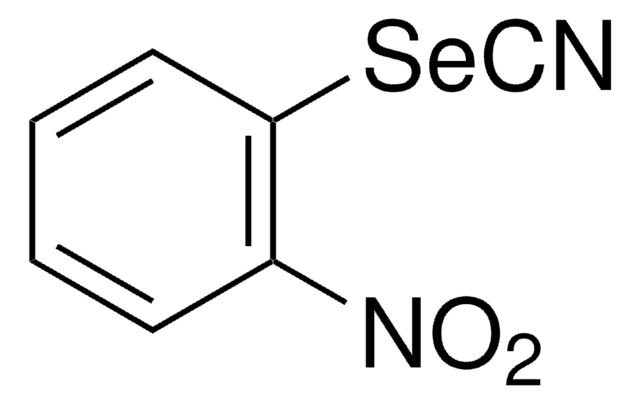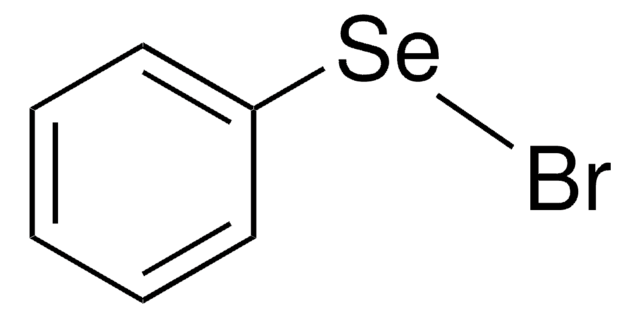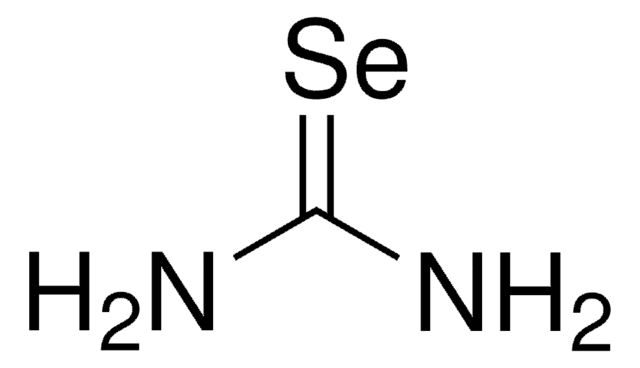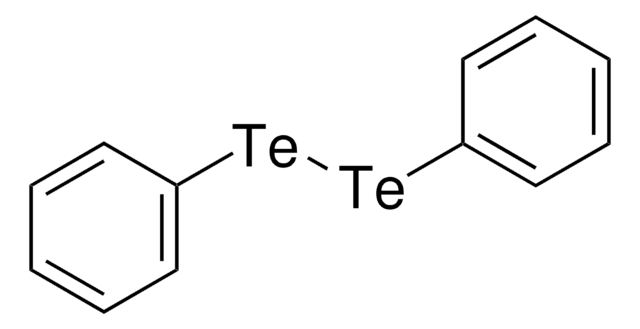About This Item
Recommended Products
Assay
96%
refractive index
n20/D 1.603 (lit.)
bp
116-117 °C/12 mmHg (lit.)
density
1.484 g/mL at 25 °C (lit.)
storage temp.
2-8°C
SMILES string
N#C[Se]c1ccccc1
InChI
1S/C7H5NSe/c8-6-9-7-4-2-1-3-5-7/h1-5H
InChI key
NODWRXQVQYOJGN-UHFFFAOYSA-N
General description
Application
- benzeneselenol esters
- 2-bromoethyl phenyl selenie dibromide
- α,α-dioxy-β-phenylseleno carbonitriles
- β-alkoxyalkyl phenyl selenide
Signal Word
Danger
Hazard Statements
Precautionary Statements
Hazard Classifications
Acute Tox. 3 Inhalation - Acute Tox. 3 Oral - Aquatic Acute 1 - Aquatic Chronic 1 - STOT RE 2
Storage Class Code
6.1A - Combustible acute toxic Cat. 1 and 2 / very toxic hazardous materials
WGK
WGK 3
Flash Point(F)
228.2 °F - closed cup
Flash Point(C)
109 °C - closed cup
Personal Protective Equipment
Certificates of Analysis (COA)
Search for Certificates of Analysis (COA) by entering the products Lot/Batch Number. Lot and Batch Numbers can be found on a product’s label following the words ‘Lot’ or ‘Batch’.
Already Own This Product?
Find documentation for the products that you have recently purchased in the Document Library.
Customers Also Viewed
Articles
For microbiologists the most fundamental stain was developed in 1884 by the Danish bacteriologist Hans Christian Gram.
For microbiologists the most fundamental stain was developed in 1884 by the Danish bacteriologist Hans Christian Gram.
For microbiologists the most fundamental stain was developed in 1884 by the Danish bacteriologist Hans Christian Gram.
For microbiologists the most fundamental stain was developed in 1884 by the Danish bacteriologist Hans Christian Gram.
Our team of scientists has experience in all areas of research including Life Science, Material Science, Chemical Synthesis, Chromatography, Analytical and many others.
Contact Technical Service













